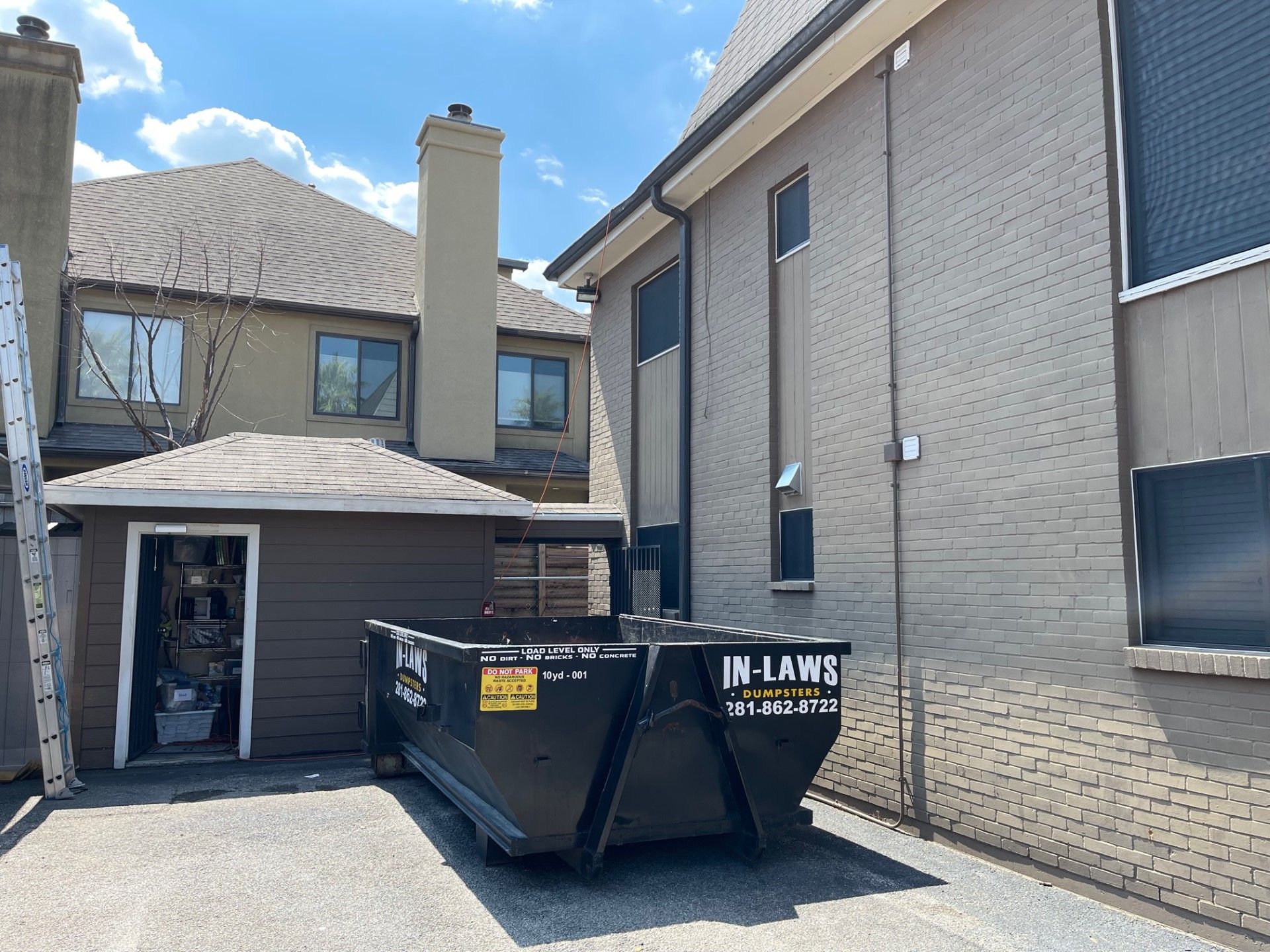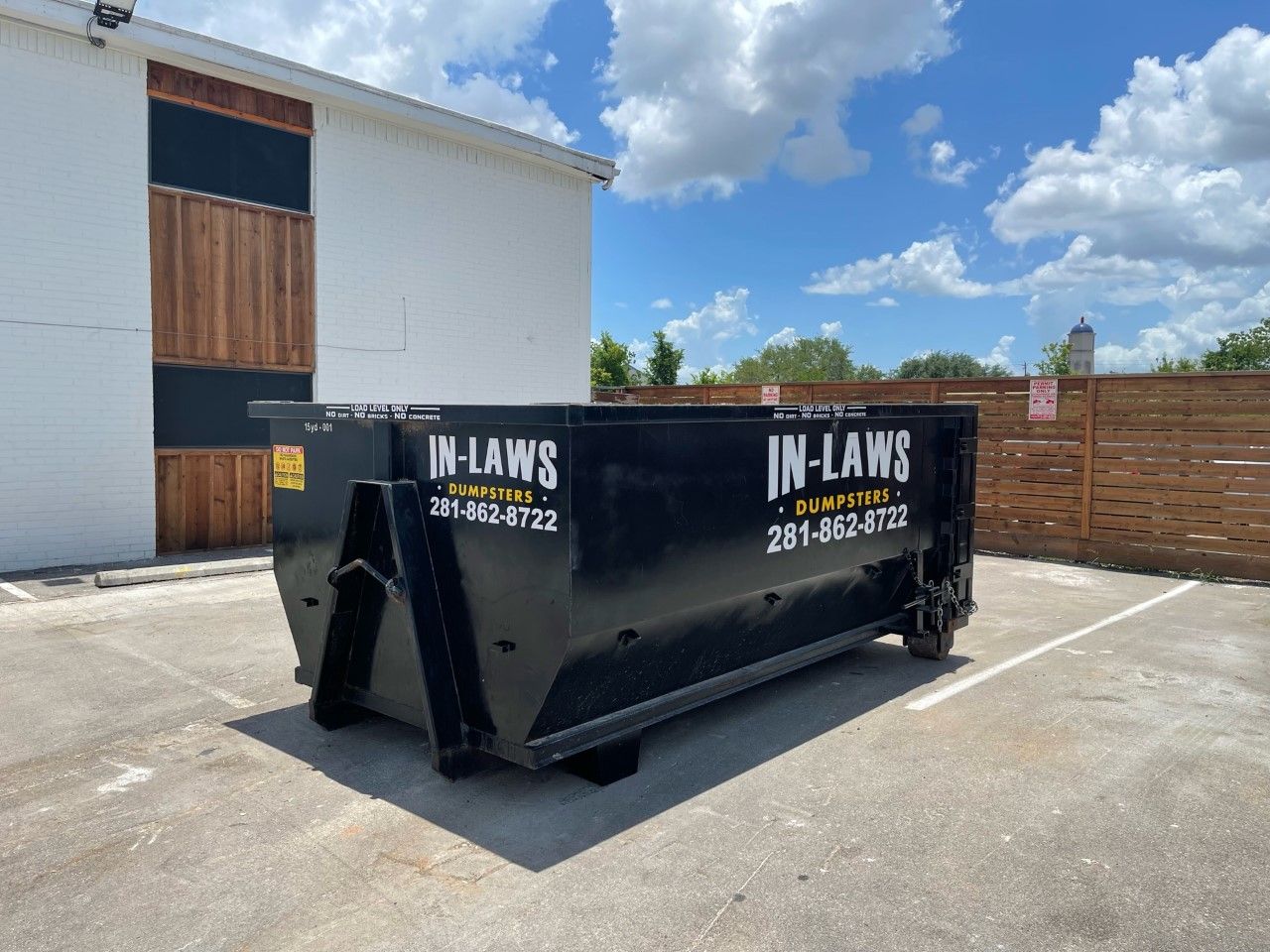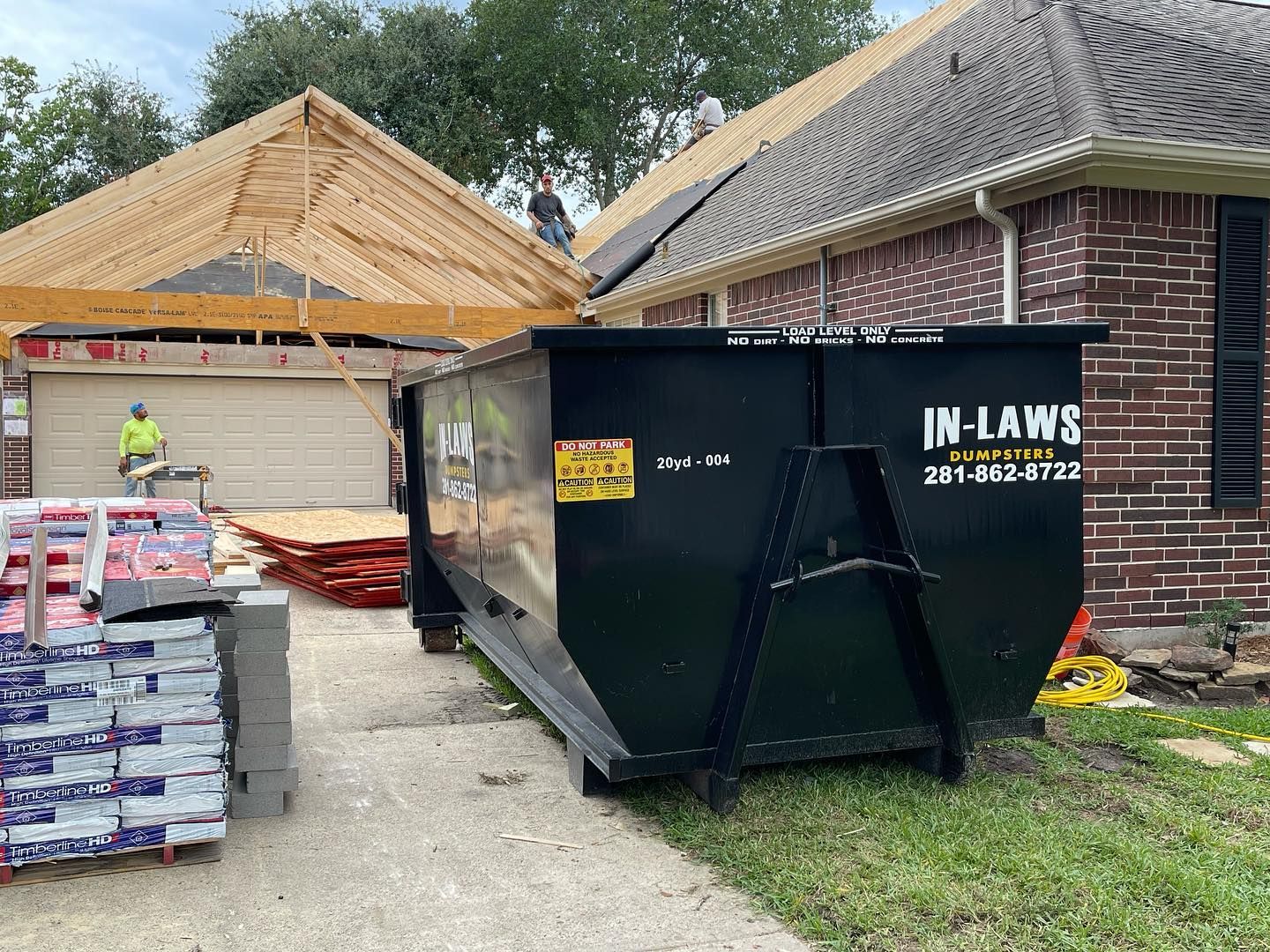Construction Dumpster Rental in Houston, Texas: Common Prohibited Items and How to Handle Them
Construction Dumpster Rental in Houston, Texas: Common Prohibited Items and How to Handle Them
A construction dumpster rental is essential for managing debris on any job site, but Houston, Texas, has specific rules and resources you must follow to stay compliant and environmentally responsible. Understanding which items are prohibited from dumpsters—and how to properly dispose of them in Houston—will keep your project running smoothly and help you avoid costly fines.
Why Are Certain Items Prohibited in Houston Construction Dumpsters?
Prohibited items in construction dumpster rentals are restricted due to safety, environmental, and legal reasons. Houston’s local regulations are designed to protect public health, prevent pollution, and ensure that hazardous materials are handled correctly. Disposing of restricted items improperly can lead to soil and water contamination, health hazards, and legal penalties.
Common Prohibited Items in Houston Construction Dumpster Rentals
While most construction debris can go in your dumpster, the following items are generally banned in Houston:
1. Hazardous Waste
- Paints , Stains, and Varnishes: Oil-based paints and stains are considered hazardous and must be taken to an Environmental Service Center (ESC) or the Westpark Consumer Recycling Center. Latex paint can be dried out and placed in the trash, but large quantities should be brought to a recycling center.
- Chemicals and Cleaners: Pesticides, solvents, pool chemicals, and industrial cleaners require special disposal at designated hazardous waste facilities.
- Automotive Fluids: Motor oil, antifreeze, brake fluid, and other automotive liquids must be brought to a City of Houston recycling center or hazardous waste facility.
- Asbestos and Lead-Based Materials: These require certified removal and cannot be placed in dumpsters or regular trash.
2. Electronics and Batteries
- E-Waste: Computers, TVs, and other electronics must be recycled at approved facilities. The City of Houston’s ESCs accept residential electronic scrap items for recycling.
- Batteries: Car batteries and rechargeable batteries are accepted at the Westpark Consumer Recycling Center and ESCs. Lithium batteries are a fire hazard and strictly prohibited in dumpsters.
3. Appliances with Refrigerants
- Refrigerators and Air Conditioners: Must have refrigerants professionally removed before disposal. These appliances should be taken to a recycling center that accepts them.
4. Tires
- Tires are not accepted in Houston dumpsters. They must be recycled through specialized facilities due to their environmental impact and landfill restrictions.
5. Pressurized Containers
- Propane Tanks and Gas Cylinders: These are explosive hazards and must be taken to designated drop-off centers, not placed in dumpsters.
6. Medical and Biohazardous Waste
- Needles, syringes, and other medical waste are strictly prohibited and must be handled by licensed medical waste programs.
7. Treated Wood and Railroad Ties
- Items like railroad ties contain toxic preservatives and require special disposal methods.
8. Liquids and Flammable Materials
- Gasoline, oil, and other liquids are not permitted due to risk of spills and fire.
How to Handle Prohibited Items in Houston
Houston offers several resources for the responsible disposal of restricted materials:
1. Use City Recycling and Hazardous Waste Facilities
- Westpark Consumer Recycling Center: Accepts latex paint, used oil, antifreeze, car batteries, and more. Oil-based paints and hazardous chemicals should be brought here or to an ESC.
- Environmental Service Centers (ESCs): Accept most household hazardous waste and residential electronic scrap items. Proof of residency is required, and residents may visit once every 30 days.
- Harris County Household Hazardous Waste Facility: Another resource for safe disposal of household chemicals and hazardous materials.
2. Neighborhood Depository/Recycling Centers
- Houston residents can use these centers up to four times per month for construction debris, junk, and tree waste. A Texas-issued ID and matching utility bill are required.
- Vehicle size and type restrictions apply—no vehicles over two tons or trailers longer than 16 feet.
3. Donation and Reuse Options
- Usable building materials can be donated to local organizations or reuse centers, reducing landfill waste and benefiting the community.
4. Follow Local Guidelines
- Always check with your dumpster rental provider and the City of Houston for the latest regulations and disposal options. Improper disposal can result in fines and environmental harm.
Why Choose In-Laws Services for Construction Dumpster Rental in Houston?
Renting a construction dumpster from In-Laws Services gives you a local partner who understands Houston’s unique waste management regulations and resources.
Expert Guidance:
In-Laws Services provides clear information on what can and cannot be placed in your dumpster, helping you avoid costly mistakes and stay compliant with city ordinances.
Local Knowledge:
Their team is familiar with Houston’s recycling centers, hazardous waste facilities, and donation options, ensuring your prohibited items are handled responsibly.
Convenient Service:
In-Laws Services offers prompt delivery and pickup, multiple dumpster sizes, and flexible rental periods tailored to your project’s needs.
Community Commitment:
As a veteran-owned, family-operated business, In-Laws Services is dedicated to keeping Houston clean and safe by promoting responsible waste management and supporting local environmental goals.
Final Thoughts: Why A Construction Dumpster Rental Is Essential
A construction dumpster rental streamlines debris removal, but in Houston, Texas, you must follow specific rules for prohibited items. Hazardous waste, electronics, tires, and certain appliances require special handling through city-approved facilities. By partnering with a knowledgeable provider like In-Laws Services and utilizing Houston’s robust recycling and hazardous waste infrastructure, you can keep your project compliant, efficient, and environmentally responsible. Always check local regulations, separate restricted items, and use city resources to dispose of them safely.



